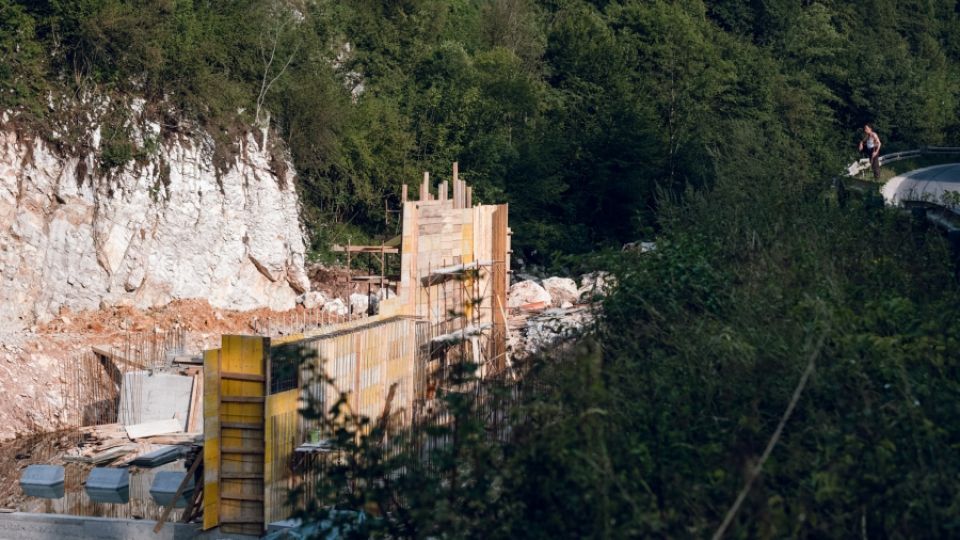“Amend the laws on concessions!” is the call from environmental NGOs to the governments of Bosnia and Herzegovina. Concessions, as permission to use public goods for private business, should be issued in the public interest. As shown by the recent analysis of the environmental NGOs Arnika and Coalition for the Rivers (1), this is not the case in Bosnia and Herzegovina, where the authorities issue concessions for harmful projects of small hydropower plants that damage nature and the rights of local communities, while citizens have no say in it. In a number of cases, public disapproval has resulted in rallies and clashes. Every person can support the initiative by joining the public call (2).
Prior to a concession for a hydropower plant being issued, the public should be allowed to make comments and its opinions should be taken into account, as is the case with other decision making on environmental matters. Moreover, municipalities should play a key role in the process, for example, by organizing public hearings. “We invite all of the citizens who care about their rivers to join the public call demanding amendment of the laws on concessions,” says Zuzana Vachunova from the Czech NGO Arnika.
“In order to achieve full transparency and participation of citizens in the decision-making process on concessions, it is necessary to amend the existing laws from the ground up, to adopt new laws at all levels. Otherwise, the state has the right to 'sell off' natural resources, declaring the public interest without the consent of citizens, and thus causing irreparable damage to both the environment and the local population, which in most cases is existentially dependent on natural resources that the state hands over to concessionaires,” explains Nina Kresevljakovic, legal advisor to the Aarhus Centre Sarajevo.
In the Republika Srpska of Bosnia and Herzegovina (3), the solution proposed by the NGOs is to amend the existing Law on Concession so that it enables the participation of the public (4) and active involvement of municipalities. Concessions should be treated under the auspices of administrative law, as a public-legal contract.
“Today, the authorities give concessions to private individuals without any adopted plan and program, most often enabling them to profit from the destruction of the environment. The public has been increasingly openly expressing its dissatisfaction with such decisions ignoring their voice. Although concessions are considered a public interest in the service of citizens, the public is left out in this regard and has no right to challenge the harmfulness of the concession contract in court proceedings,” the independent lawyer Ratko Pilipović comments.
The laws existing in the Federation of Bosnia and Herzegovina do not provide the public with the opportunity to participate in the adoption of documents on concession policy. “It is necessary to adopt new laws on concessions which would include public participation in accordance with the principles of the Aarhus Convention,” continues Nina Kresevljakovic. “The first step needs to be taken right now: the change of the Law on Concession in an urgent procedure, so that the issuance of concessions for harmful small hydropower plants will stop,” Kresevljakovic adds.
On the level of Bosnia and Herzegovina, and the Brčko District, it is necessary to draft and adopt a new Law on Concessions which would include public participation in concession policies and the participation of municipalities in the preparation and drafting of the Concession Policy Document.
Numerous cases of public rallies and protests are the result of current undemocratic policies. “Because citizens are not informed about concessions, they cannot respond appropriately and in time, which, for example, in Kruščica (5) has led to protests, almost two years of a blockade of the bridge, and even police violence,” urges Vachunova. “Improved policies can prevent future conflicts between the local residents, investors, and the state, and help to use the natural resources in more reasonable ways,” she concludes.
Footnotes:
(1) Full analysis Koncesije: javno dobro zajednice ili privatno vlasništvo vlada is available online here: https://eko.ba/publikacije/330-koncesijje-javno-dobro-zajednice-ili-privatno-vlasnistvo-vlada
(2) To read more and join the public call: https://eko.ba/oslobodite-naše-rijeke
(3) Bosnia and Herzegovina is formed of two constitutional “entities” established on ethnic principles – the Republika Srpska (a Serbian entity) and the Federation of Bosnia and Herzegovina (a Bosniak-Croat entity). The central government ties both of them together in a fragile state.
(4) Article 10 of the Law on Concessions in RS
(5) During the adoption of the Amendments to the Spatial Plan of the Municipality of Vitez, adequate information and public involvement on planned projects on the River Kruščica were prevented. After the adoption of the Amendments, the procedure for signing concession contracts between the jurisdictional authorities and investors was initiated and the public was not informed about this either. The investor then proceeded to collect the remaining necessary documentation, such as environmental and construction permits. However, the public hearings regarding the issuance of environmental permits were not organized and advertised in an adequate manner, and the interested public missed out on the opportunity to participate in them. After the investor had collected all the necessary documentation, he started implementing the project. Only at that moment did the public face the harsh reality that two hydroelectric power plants would be built on their river. Besides organizing protests, the locals initiated legal procedures against the permits, but also against the concession contracts. More about the story of Kruščica: https://www.arnika.org/en/hotspots/bosnia/kruscica







